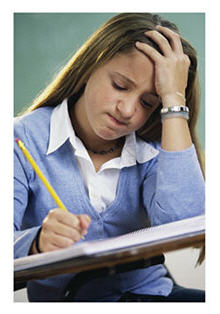I love talking about my kids as much as the next person, not to mention sharing good parenting advice – if and when I stumble across it.
 I am very aware that I’ve been fortunate so far with my two kids, which isn’t to say I haven’t experienced worries and heartache. But while I believe I’m a good mother, I also believe there’s an element of luck of the draw, and I don’t pretend otherwise.
I am very aware that I’ve been fortunate so far with my two kids, which isn’t to say I haven’t experienced worries and heartache. But while I believe I’m a good mother, I also believe there’s an element of luck of the draw, and I don’t pretend otherwise.
As for the pros and cons of hyperparenting (euphemism for helicoptering)?
Apparently, the debates rage on.
And they continue this weekend on the New York Times Room for Debate, and I find it ironic.
Specifically, the Times offers various conversations around this: “When Parents Hover and Kids Don’t Grow Up,” with a variety of opinions that range from “let them stumble and fall” to “the advantages” of extending the period of time during which parents and children (young adults) are actively involved in each others’ lives.
The discussion suggests that “helicoptering” just may be about to crash and burn. Maybe.
And the irony – to me? It’s a discussion that only “involved” parents would engage in, and possibly – educators and academicians.
Parents Who Do Too Much, Parents Who Do Too Little
Getting down and dirty, the issue is parents who are (too) actively involved in their kids’ lives, and a determination that it makes the children dependent. Some may term this overdoing it; others may view it differently, as a necessity in a complicated world.
And when it comes to older teens and young adults, parental support may be economic – the result of the high cost of education (debt burden), and also, the instability of today’s economy.
But let’s get real. We know if we’re doing too much when we do it. Sometimes we feel we have little choice; other times, we feel pressured (by family, by peers, by schools, by physicians, by the media).
We also know when we aren’t doing enough. Don’t we all have times when we “neglect” certain of our own parenting expectations? Or is it guilt, and we’re simply not in Super Parent mode? Aren’t we pretty quick to point a finger at another parent (usually the mother) who seems to be less involved than we might consider adequate?
Common Sense
I’m all for specialists; we may require expert assistance to deal with tricky or potentially dangerous situations – physical, psychological, educational, and more.
May we all be so fortunate as to have affordable access to those resources when we need them.
But what about common sense? How many times do we have to remind ourselves that each child is different? That life circumstances change the picture? That society as a whole is grossly different than it was for our parents or grandparents – as they might of said about their parents or grandparents? That one environment (or style) is suitable for one child, but utterly wrong for another? That a motherly mea culpa, mea culpa is pointless and even counterproductive – whatever your parenting style?
Next Parenting Trend?
To be frank, I’m a little “over” this conversation in so far as it dissects (yet again) the ways in which we deal with our children. I’m a little “over” the reality that when it comes to parenting (mothering), it’s a damned if you do, damned if you don’t situation – with no end in sight.
I get it. We have serious issues with narcissism and entitlement in this country. And that discussion, I’m not over.
But it goes beyond parents who worry about doing too much or too little for our kids. It goes to our institutions, to our choices, to our voices. I’m tired of feeling as if parents are supposed to be fashioned out of some sort of malleable material, expected to bend and twist with the next trend telling us whatever is key to Millennial Mother (or Father) Knows Best.
What about context? What about common sense?
Parenting by Cultural Bottom Line
 We cannot divorce our parenting from the cultural and individual values that we choose to instill – or not – in our children. Why are we pretending otherwise?
We cannot divorce our parenting from the cultural and individual values that we choose to instill – or not – in our children. Why are we pretending otherwise?
We cannot ignore the availability of means to self-destruct now available to our kids, despite the behaviors taught and modeled. Why are we pretending otherwise?
We cannot control the outcome of our parenting – regardless of how hard we attempt to do so, though I believe we can prepare, we can guide, we can protect our children from obvious danger which is only natural. Why are we pretending otherwise?
We cannot divorce our parenting from the economy, from our educational system, from our healthcare options, from our familial dysfunctions that have become the norm – which does not make them “normal.”
Why are we pretending otherwise?
I’ve taken Dear Abby’s advice on kids to heart: Over-mother when they’re under 18; under-mother when they’re over 18. When I face the choice, that’s how I determine my course of action. And respect their natural evolution into adults, letting them make some mistakes, even when I have to bite my tongue so hard it bleeds.
I think too many people are all too happy to engage in a game of “it’s your fault” to actually solve problems. I think the conversation is good, and I suppose it’s only going to happen if people take extreme positions. In the end, though, we all have to just do what we think is best. And deal with the things that we cannot control. And vote.
@Susan – Sounds like practical advice. (The sort of basics we forget easily.)
@April – Trying to place blame doesn’t get us far, does it.
Thank you so much for this. it seems in the “are we doing it right, are we doing wrong, and more importantly are *you* doing it right, are *they* doing it wrong,” debate, we have lost track of some of the common sense questions.
Could they get hurt if they don’t have supervision right now? Do they tend to make good choices or bad choices when left to their own devices? Do they have enough information to make the choice themselves? Do they benefit more by do ing this themselves?
On the spectrum from free range parent to helicopter parent, there must be dozens of ways of doing this correctly so that you wind up with a self sufficient, competent, decent citizen in your family.
How about we talk more about supporting families in focusing on that end goal?
Wonderful “common sense” perspective, Naptimewriting. I agree… completely.
Speaking from the vantage point of having raised three kids and ushered them into adulthood, and now as a grandparent to two little ones (both under 3)…parenting is hard. THE hardest road to travel in life (along with marriage I think). Your children reflect what they learn in your home. When a parent values kindness, serving others as better than yourself, being wise with resources, and seeing the beauty in the world then they naturally teach their children to live this way. Today’s parents are overloaded with resources telling them how to parent successfully…so today’s parents do their best to fill a role. This does not instill values in a child, it teaches them to play the part. Look at what happens in the natural moments within your four walls. What is your child learning then?
“Today’s parents are overloaded with resources telling them how to parent successfully…so today’s parents do their best to fill a role. This does not instill values in a child, it teaches them to play the part.”
Such wise words, Old Married Lady.
“We have serious issues with narcissism and entitlement in this country.” You have stated a sad truth. Unfortunately, these are the values that are being passed onto some children. I can’t say I am surprised. We live in a culture that not only feels they must “keep up with the Jones’s”; they must outdo them. We live in a culture that believes in instant gratification, and that means giving children what they want when they “demand” it.
I don’t like playing the blame game, but I have seen many children who are completely undisciplined and they believe they are the center of the universe. In some ways, I feel like their parents are afraid of disappointing them – or – they are trying to make up for some perceived lack in their parenting, so they overcompensate. I also think that the whole idea of instilling self-esteem and not injuring the psyche of a child has been misunderstood, so that some parents just want to give positive reinforcement without any negative consequences (when they might be called for).
Thankfully, I do think that there are parents who have common sense and are raising their children with good values, good manners, and healthy attitudes. Raising children is difficult, and how we do it is affected by circumstances within the family and by resources, etc. that are available. Having said that, I still believe that even in less than desirable circumstances, it is possible to raise well-adjusted children into adults who are good people and good citizens.
I agree with your conclusion, Robin. I believe parents influence enormously, but I also think the element of “luck of the draw” cannot be ignored. I’ve known wonderful parents who still have heartbreaking experiences with their kids in teenage and early adult years. I’ve known fairly crappy (even abusive) parents whose children manage to keep themselves whole and learn resilience.
D.A., I do agree that there is an element of “luck” when it comes to children and their personalities and temperaments – that good parenting might have little affect on a child who is bent on destruction – and bad parents might end up with a child determined to rise above that. The nature versus nurture debate? I think both are at play.
I have to say that I lucked out with both of my children 🙂
Luck, yes. It could be the most important thing. And one other thing–parenting well takes time. It takes time to listen. In this culture, if you’re going to take the time to listen to your kid, just listen, something else has to give.